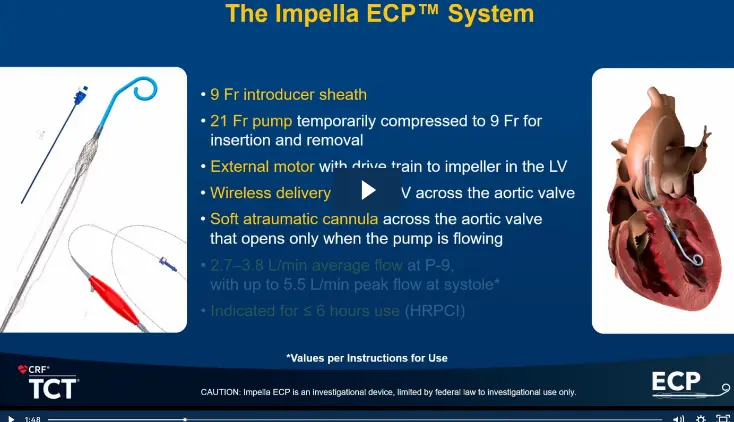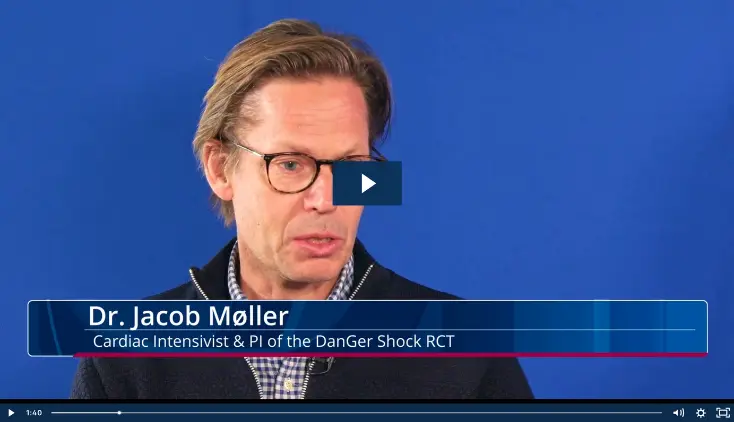Clinical Research & Data, Escalation Therapy, IABP
IABP for Acute-On-Chronic Heart Failure Complicated by Cardiogenic Shock
Federico Pappalardo, MD, an international leader in mechanical circulatory support (MCS), describes the role of the intra-aortic balloon pump (IABP) in the treatment of acute-on-chronic heart failure complicated by cardiogenic shock. Dr. Pappalardo is the senior author of a paper titled “Intra-aortic balloon pump for acute-on-chronic heart failure complicated by cardiogenic shock” published in Journal of Cardiac Failure.
Dr. Pappalardo, who directs the cardiothoracic ICU at San Raffaele Scientific Institute in Italy, explains that while IABP has a diminishing role in the management of acute myocardial infarction cardiogenic shock (AMICS), it appears to have an important role in managing the phenotype of acute-on-chronic heart failure cardiogenic shock. He describes the need for early recognition of cardiogenic shock and early access to mechanical support for these patients with acute-on-chronic decompensated HF and the need to reevaluate prolonged use of inotropes in these patients, especially when management of AMICS advises avoidance of inotropes.
This paper examines why different shock phenotypes respond differently to IABP support. Dr. Pappalardo explains that patients with acute-on-chronic decompensated heart failure often have chronic low cardiac output and IABP may provide enough augmentation of CO in this low output state even though it has been shown to provide insufficient support in cases of AMICS. “The patient is used to chronic low output and the minor increase of cardiac output can be effective,” he explains, especially to help gain time to evaluate the patient’s end organ dysfunction and RV function and consider management strategies.
Dr. Pappalardo explains that when time is a priority, IABP is attractive because it is the easiest device to implant. In addition, because it is an extra-cardiac pump, it may be appropriate for patients with LV thrombus or mechanical aortic valve in whom other devices may be contraindicated. IABP is, however, not optimal for all patients, such as those with moderate-to-severe aortic insufficiency (AI) or rhythm disturbances such as rapid atrial fibrillation or ventricular tachycardia.
Dr. Pappalardo reviews Figure 2 from the paper, which illustrates criteria for managing shock and when to escalate MCS to full support (eg, Impella 5.0®/Impella 5.5® with SmartAssist®, VA-ECMO, ECpella). He explains the importance of providing early diagnosis and timely intervention before patients progress to overt cardiogenic shock.
In this interview, Dr. Pappalardo also discusses the ALT-SHOCK II study, which plans to randomize 200 patients in Italy to IABP or standard inotropic therapy for acute-on-chronic heart failure. Dr. Pappalardo is one of the principal investigators of this study. He explains that the study endpoints were designed several years ago with the idea that patients with decompensated heart failure required a bridge strategy to transplant or durable LVAD. Now, Dr. Pappalardo explains, they are planning to amend the trial to enroll patients who can have native heart recovery.
NPS-2729


